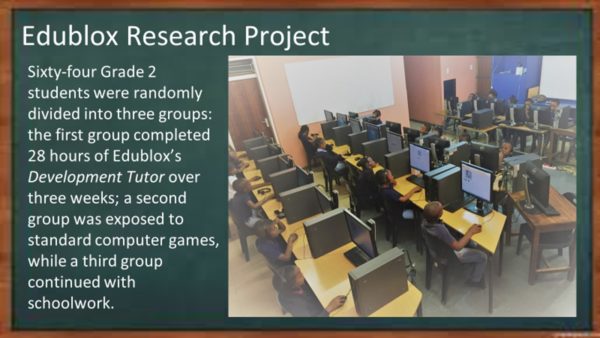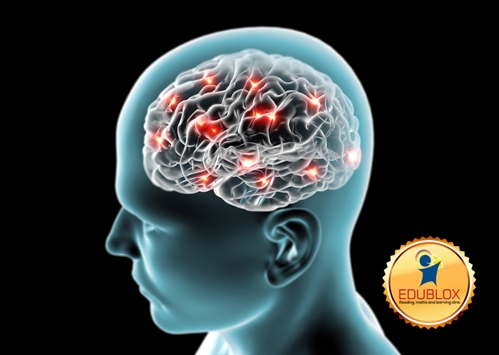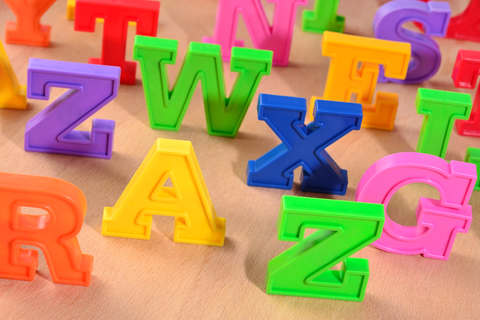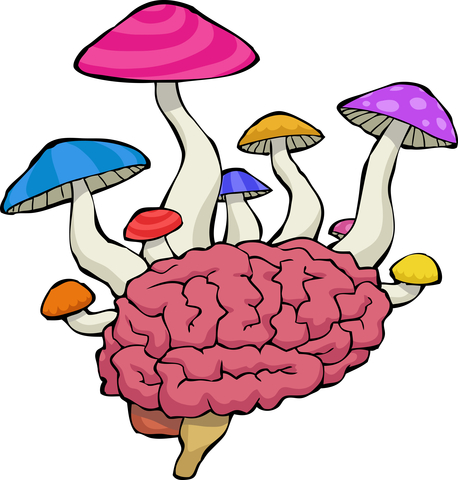Research Project on Auditory Memory: The Overlooked Learning Skill Deficiency
Sixty-four Grade 2 students were randomly divided into three groups: the first group completed 28 hours of Edublox's Development Tutor over three weeks; a second group was exposed to standard computer games, while a third group continued with schoolwork...
Read MorePoor Working Memory Impedes Academic Success, Preventing Children from Achieving Their Potential
According to researchers from Durham University, children who underachieve at school may just have poor working memory rather than low intelligence. On the positive side learners with a strong working memory are likely to do well maintaining focus and attention in a variety of academic settings, and improving working memory can boost...
Read MoreThe Real Facts About Your Child’s IQ
IQ stands for Intelligence Quotient. But it is debatable whether IQ tests really measure intelligence (or whatever it is we mean by “intelligence” — psychologists have been divided for years). IQ tests do not take into account aspects such as creativity, artistic or musical talent — a child can most certainly be “gifted” without having a high IQ....
Read MoreAsleep or Awake We Retain Memory
Sleeping helps to reinforce what we've learned. And brain scans have revealed that cerebral activity associated with learning new information is replayed during sleep. But, in a study demonstrate for the first time that the brain doesn't wait until night to structure information. Day and night, the brain doesn't stop (re)working what we learn.
Read MoreVisual Discrimination: A Foundational Reading Skill
Visual discrimination is a visual perceptual skill and refers to the ability to differentiate one object from another. The ability to discriminate letters and words visually becomes essential in learning to read. When a person is reading, visual discrimination must take place all the time. One must be able to discriminate visually in terms of colour, foreground-background, form, size, and position in space.
Read MorePoor Working Memory a Barrier to Academic Success
Children who underachieve at school may just have poor working memory rather than low intelligence, according to researchers who have produced the world's first tool to assess memory capacity in the classroom. Researchers from Durham University, who surveyed over three thousand children, found that ten percent of schoolchildren across all age ranges suffer from poor working memory seriously affecting their learning.
Read MoreVisual Perception and Academic Success
Getman, a renowned behavioural optometrist, defined vision as a learned ability to understand things which cannot be heard, touched, smelled or tasted. He distinguished vision from sight which, according to him, is simply a response to light and from acuity which refers to light's clarity, and stated that vision enables the child to interpret the world.
Read MoreResearch Study: Visual Memory Improved by 1.3 Years in Five Days
Various researchers have stated that as much as eighty percent of all learning takes place through the eye, with visual memory existing as a crucial aspect of learning. Visual memory involves the ability to store and retrieve previously experienced visual sensations and perceptions when the stimuli that originally evoked them are no longer present.
Read MoreCognitive Development Is Not an Automatic Process
Cognitive development focuses on how children learn and process information. It is the development of the thinking and organising systems of the mind. It involves language, mental imagery, thinking, reasoning, problem solving, and memory development.
Read MoreMemory Fundamental to Reading, Spelling and Learning
Although the word memory may conjure up an image of a singular, "all-or-none" process, it is clear that there are actually many kinds of memory: sensory register, short-term memory, long-term memory, visual memory, auditory memory, and sequential memory, to name but a few.
Read More













